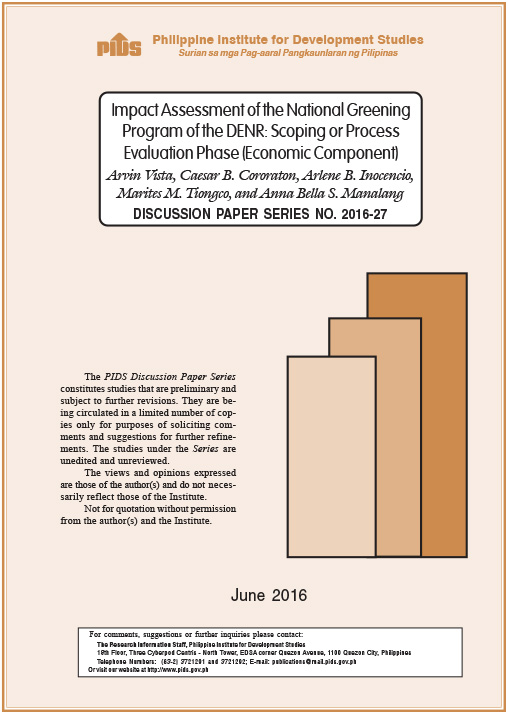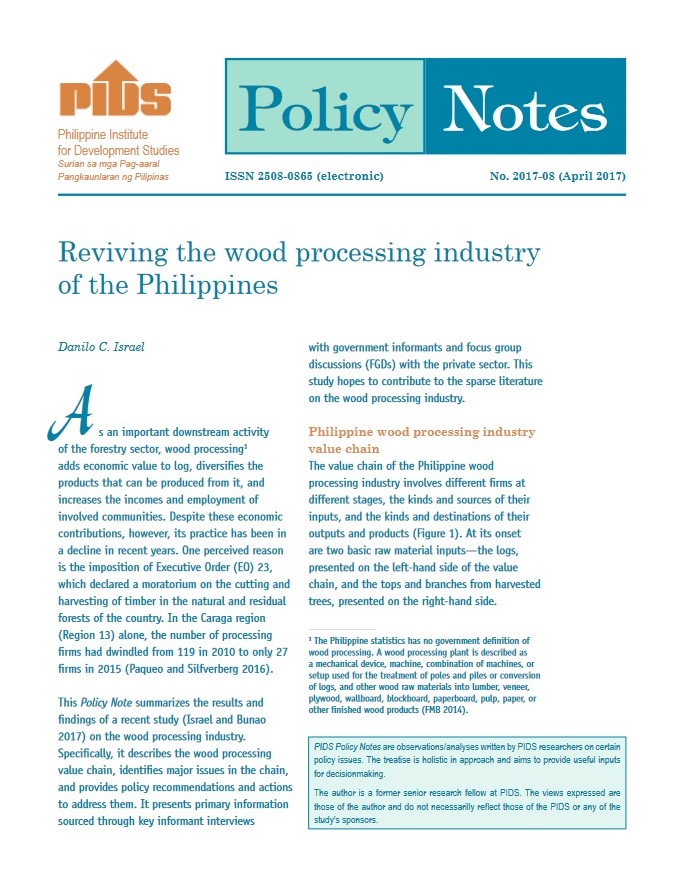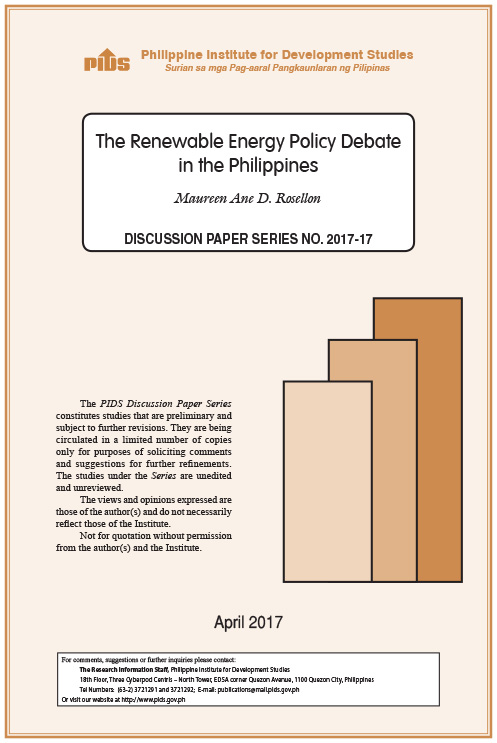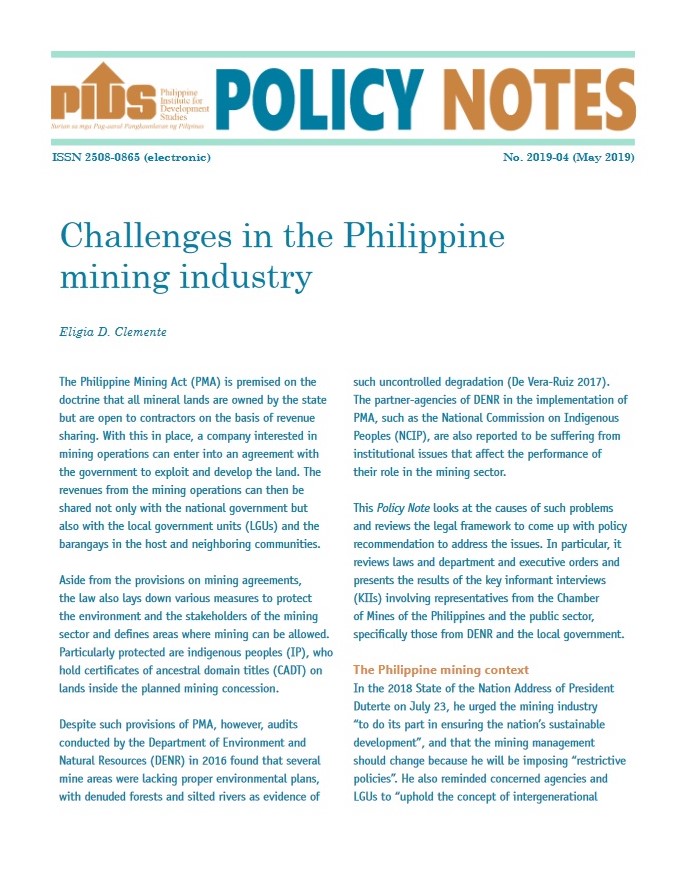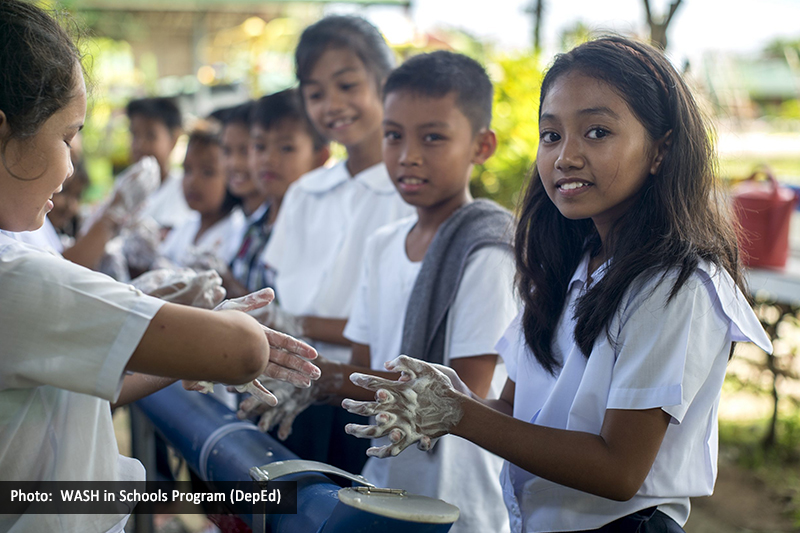To avert the continued deterioration of Philippine forests and its negative consequences on the environment, the Aquino administration executed the National Greening Program (NGP) as the reforestation initiative of the government from 2011 to 2016. This study focuses on the scoping and process evaluation of the NGP using household survey, key informant interviews, and focus group discussions data gathered from the randomly chosen sites in the provinces of Zambales, Negros Occidental, and Dinagat Islands.
Key results showed that the NGP household recipients experienced some marginal increase in average real income, though it was not statistically significant. The same is true when comparing NGP household recipients versus non-NGP household recipients. Propensity score matching results revealed that the effects of NGP on the local people have evidently induced bigger household size, higher number of working household members, and positive perception on NGP activities. In summary, there is no "one-size fits all" NGP strategy that would increase the likelihood of success. Recommended modification in the next program on Natural Forest and Landscape Restoration Program can focus on adjustments in allocated budget for forest development per hectare, revisions of incentives appropriate in a given reforestation site, and increased support to forest protection of existing forests, among many other suggested actions.
Citations
This publication has been cited 1 time
- Karol Ilagan . 2021. 7 million hectares of Philippine land are forested – and that’s bad news. Rappler.

